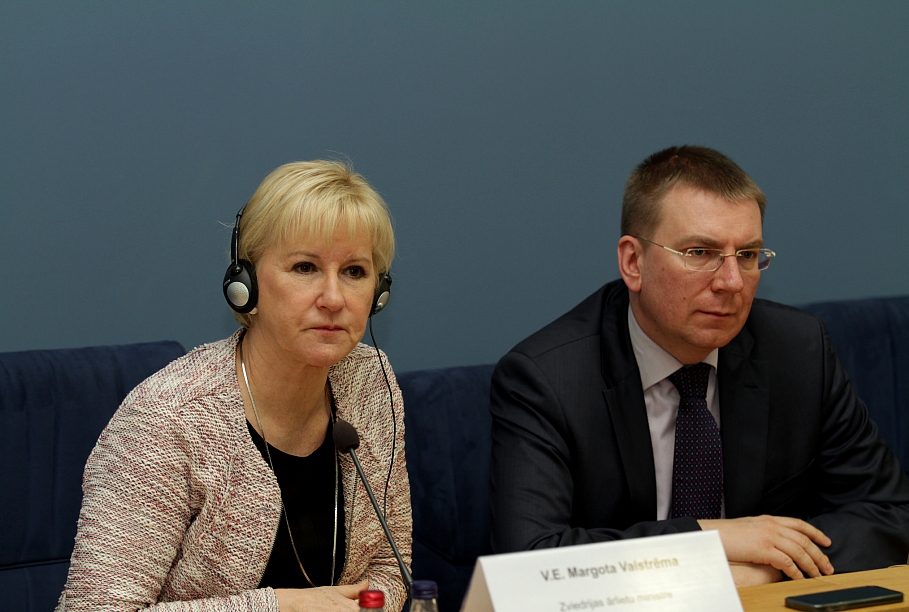The minister, who is currently playing a key role in the EU's diplomatic efforts to broker a peace deal as Latvia holds the rotating Presidency of the EU, spoke to journalists after a meeting with his Swedish counterpart Margot Wallstrom.
A rather downbeat Rinkēvičs said his visit to Kyiv and Moscow ten days ago in a bid to broker a peace deal "already feels like ancient history."
Unless there is an improvement, "We will have to look at EU level at what kind of additional pressure we can have," Rinkēvičs said.
"If there is a serious deterioration then the EU has to come back and look into the matter one more time and think what we can do on our part to facilitate implementation of the [Minsk] agreement but also what kind of additional pressure there can be."
Rinkēvičs had travelled to Kyiv and Moscow at the behest of EU foreign policy supremo Federica Mogherini as Latvia currently holds the rotating Presidency of the Council of the EU.
However, despite reports of some of the heaviest fighting so far in the Ukraine conflict, Rinkēvičs said he still hoped the Minsk Agreements could be implemented as a peace plan.
"I do believe that while we do not have any other arrangement, the Minsk Agreements are the only agreements that Russia has actually signed. Those agreements have a comprehensive approach to the normalisation of the situation in the east of Ukraine and I think that right now if Russia doesn't come back... we are facing a very serious situation.
"I don't want to declare the Minsk Agreement dead yet."
Sweden's Wallstrom also signalled that there should be no let-up in the sanctions.
"We have to hold on to what we have decided," she said, adding that she hoped to see "a more democratic Russia moving in the right direction."
She also reiterated Sweden's position regarding possible future NATO membership saying while the country remained "non-aligned" and would not seek membership, "we will engage fully in a number of cooperations we have, including with NATO."
"We will not be alone, we do not consider ourselves alone, but we are engaged fully... we can act flexibly and engage with partners."
"The government has the duty and the obligation to make sure that we always choose what defends our country best and secures our territorial integrity," Wallstrom said.


































